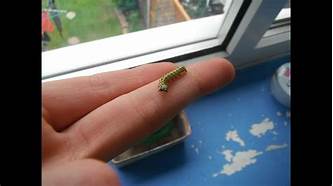How to Take Care of Pets: A Comprehensive Guide for New Pet Owners
Pets can bring immense joy and companionship into our lives, but they also require a significant commitment and responsibility. As a new pet owner, it is essential to understand the basic needs of your pet and how to provide them with a loving and nurturing home. This guide will cover the key aspects of pet care, including voeding, exercise, grooming, training, and medical attention.

Feeding
A healthy diet is crucial for your pet's well-being. The type and amount of food you provide will vary depending on your pet's age, size, and activity level. It is important to choose high-quality pet food that is appropriate for your pet's specific needs. Avoid feeding your pet table scraps or human food, as these can be harmful to their health.
Make sure to provide your pet with fresh water daily. Water is essential for maintaining hydration and supporting various bodily functions.
Exercise
Pets need regular exercise to stay healthy and happy. The amount of exercise required will depend on your pet's breed, but most pets need at least 30 minutes of moderate exercise daily. Exercise can include walks, runs, fetch, or other interactive games.
Exercise helps to keep your pet's weight in check and reduces the risk of obesity and related health problems. It also helps to relieve stress and boredom and promotes overall well-being.
Grooming
Grooming is essential for maintaining your pet's health and appearance. The frequency of grooming will vary depending on the type of pet you have, but most pets need to be brushed regularly to remove dirt, mats, and parasites.
Regular brushing also helps to distribute natural oils throughout the coat, which keeps it healthy and shiny. Additionally, trimming your pet's nails regularly is important to prevent them from becoming too long and uncomfortable.
Training
Training is an important part of pet ownership. It helps to establish boundaries and teach your pet good manners. Training can also help to prevent unwanted behaviors and promote a harmonious relationship between you and your pet.
Training techniques vary depending on the type of pet you have, but there are some general principles that apply to all animals. Positive reinforcement, such as treats or praise, is typically more effective than punishment. Consistency is key, so make sure to use the same commands and rewards each time you train your pet.
Medical Attention
Regular veterinary care is essential for maintaining your pet's health and detecting any potential health problems early on. Puppies and kittens should receive their first vaccinations within the first few weeks of life and should be seen by a veterinarian for a checkup every few months.
Adult pets should also be seen by a veterinarian at least once a year for a checkup and vaccinations. During these visits, the veterinarian will examine your pet, listen to their heart and lungs, and check their teeth and gums. They may also recommend additional tests or treatments if necessary.
By following these basic pet care tips, you can help ensure that your pet enjoys a long, healthy, and happy life.
Declaration: All article resources on this website, unless otherwise specified or labeled, are collected from online resources. If the content on this website infringes on the legitimate rights and interests of the original author, you can contact this website to delete it.




